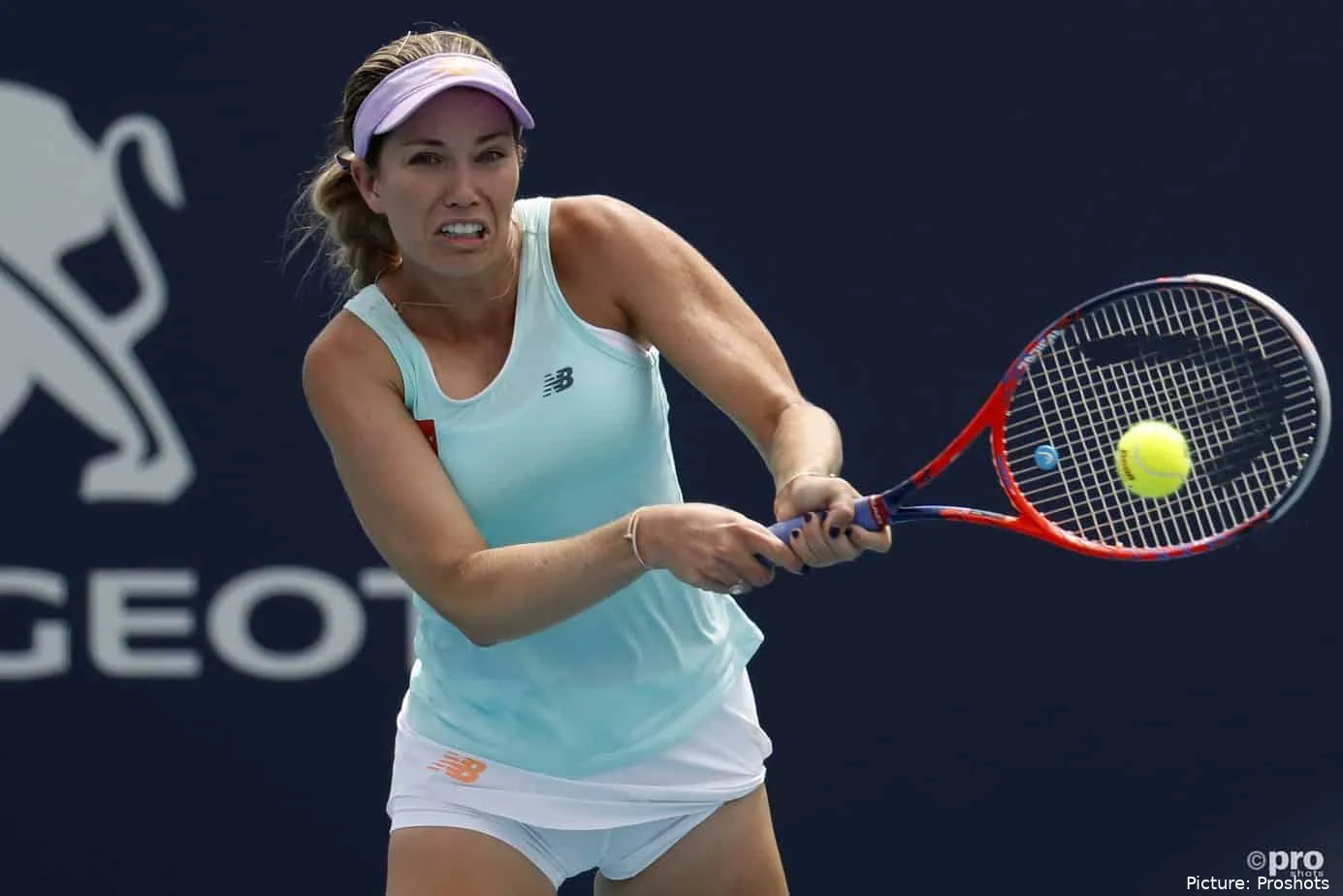Danielle Collins opens up on her battle with endometriosis - "It was incredibly debilitating"
WTASaturday, 23 October 2021 at 02:00

American tennis star Danielle Collins has had an impressive season, winning her first two WTA titles back-to-back in Palermo and San Jose. However, the 27-year old has been struggling with issues off the court, as she has been living with endometriosis for the better part of her adult life.
Endometriosis is a condition which sees cells similar to those that line the womb grow in other places, which often leads to intense abdominal pain and menstrual irregularities. In a recent interview with Eurosport, Collins opened up about living with the condition, and how it affected her quality of life.
"I’ve always had painful periods but I remember a couple of years ago being woken from my sleep and immediately needing to drive to the pharmacy to buy anti-inflammatories just to be able to get through the night," recalled Collins. "It was incredibly debilitating - there was one occasion when I physically couldn’t get on a plane to travel to my next tournament as a result of my period starting.
"Then there were times I was forced to retire from my matches because I would get this stabbing pain from my back down to my foot as my uterus had flipped back and put pressure on the sciatic nerve. It would mean regularly withdrawing from tournaments because my body just wouldn’t allow me to train or compete."
Read also
After much medical consultation, the World No.31 finally decided to take time off in April and have laparoscopic surgery, which is one of the treatments for the condition. Following the procedure, she developed a new-found confidence in herself on and off the court.
"I had a bit of a breakthrough a few weeks later in Palermo - incidentally because I had a bit of tendonitis in my elbow so that distracted me from what was going on with my abdominal area," said Collins. "All of a sudden, it was great because I no longer had the pain I’d been feeling in my abs and everything just felt good. I won my first WTA title there and then my second just a week later in San Jose - I was just in this amazing groove!
"I had a feeling it would have only made things better but I didn’t quite realize how drastically. It honestly made a day and night difference; not having the worry of my period coming and thinking out all scenarios of how badly it will impact my performance, how I’ll have to adjust my training, how I’ll need to get extra sleep… Just knowing that I can now hang in there physically, and mentally, without having the lingering fear of being stuck with awful symptoms for up to two weeks has really helped me turn over a new leaf and given me so much more confidence moving forward."
claps 0visitors 0
Just In
Popular News
Latest Comments
- You seem to have 'lost the plot' ??
- This needs to be done, and I think Jessica Pegula is an excellent choice for chair to look into the situation. However, a very brief look at the other members of the panel would suggest a very USA heavy contingent. The group needs to represent all interests, not just turn it into a way the US can screw more money out of an already biased calendar.
- The tennis world should be kissing her feet for taking-on this long needed position in a much needed council. The WTA and ATP need a good shaking-up. Pegula's business heritage is a proven one. Let's hope she and her colleagues can stop WTA & ATP from shutting their work down and out. GO GET 'EM !!
- So the Sportswasher's largest market is... the Filipino community? That's all well and good but the hundreds and hundreds of empty seats throughout is embarrassing. Talk about bad optics!
- The poor Head Sportswasher has been whining and crying in the media, and basically threatening Saba, Iga, etc. Must be a real Ego Buster when they dangle money and people (especially Women) say, 'No thanks'.
- "Losing-itis" is not uncommon in Emma's small world. Just keeps begging the question, 'What are sponsors paying for? Limited tennis appearances... or Social Selfie Media presence?'
- Dubai can suck it up like everyone else. Just because they think they run the show, they do not. Sportswashing does not give them Power.
- You're losing your mind here.. You use a lot of space, yet inadequate knowledge. Read the WTA Rule Book 2026; it answers all your questions and accusations.
- Why single out Iga and Aryna to punish?, Since when do players get punish because they withdraw from tournaments? Maybe if they both were treated like number one and two players, they would not have this problem. The WTA discriminates against them because of their nationalities, yet they want to make money off them. Every tournament, Iga has harder draws than qualifiers from the beginning to the end. In the Australian Open they stuck Aryna out in the sun the majority of her matches in order to tire her out. She is the number one player in the world and she never got the opportunity to play with the roof closed. If they want these top players to continue playing and making money for them, then they should treat them as such. Otherwise, get the players who they are always giving out cupcake draws to like Pegula to play their tournaments. Lets see how many seats in the audience she will fill. Iga has more fans in the seats than any player in the WTA, yet she is always disrespected and mistreated because of her nationality. The WTA is a corrupt, bias and racist organization. No matter what job someone is on, you cannot tell them that they are not sick or injured.
- LOL. Billie Jean King hates being a woman.
Loading








